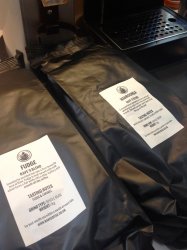I actually think that they thought this war might follow the model of the wars of the 1860s, and that of 1870-71, where a shot sharp conflict was followed by a treaty which redefined matters, borders, boundaries, balances of power
.... almost everyone (initially) thought it would be over by Christmas.
The problem was that for most states the stated war aims - neither in terms of cost of time, manpower, resources, nor in actual desired outcomes - were not finite or clearly defined in advance (unlike the wars that Bismarck had fought in the 1860s and 1870s, where his desired outcomes - a tweaking of existing systems, with Germany invariably better off as a result - were finite in time and actual poetical, economic and military aims. In his conflicts, he set out to achieve qualified - not total - victory. This allowed his opponents to crawl away from the fray beaten, but not destroyed).
European military elites did not realise that you cannot expect a Bismarkian timetable (short, sharp, sweet) to unfold, when you are not seeking Bismarkian qualified outcomes, but hubristic total outcomes.
That meant, in turn, that as timetables went awry, (Germany did not manage to subdue Paris in six weeks, and therefore, Russia did manage to get time to eventually mobilise, however shambolically)- and the war became a stalemate - and costs (in manpower, resources, and time) mounted stratospherically, (because military killing technology had improved, and defenders were able to inflict far heavier losses than heretofore) the cost of suing for peace became progressively higher for each belligerent, the longer the war went on. It became its own insane logic, with no end in sight.
Therefore, the potential cost of being seen to have been the 'loser' (even with a minor or major redrawing of boundaries) along with a Treaty to confirm outcomes came to be seen to be far too high, and politically - and militarily - unacceptable, and not just to the political (and military) elites, but to the ordinary populations who were (initially at least) fervent supporters of the war.



